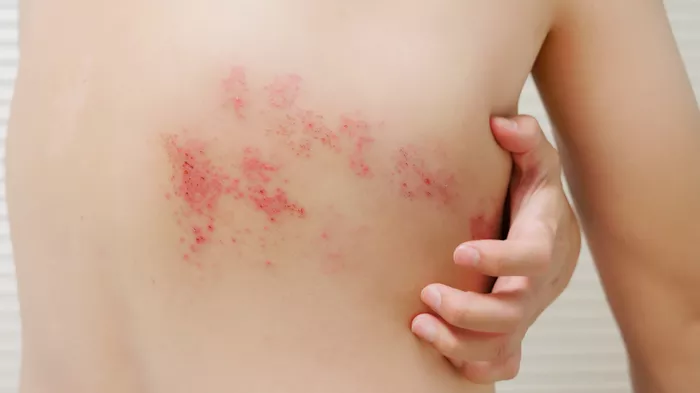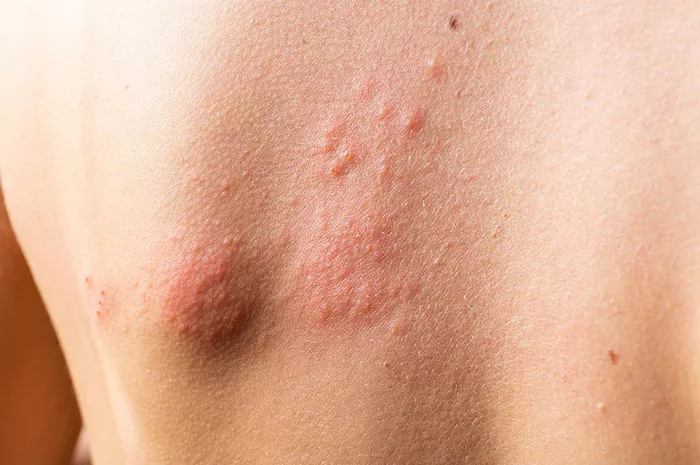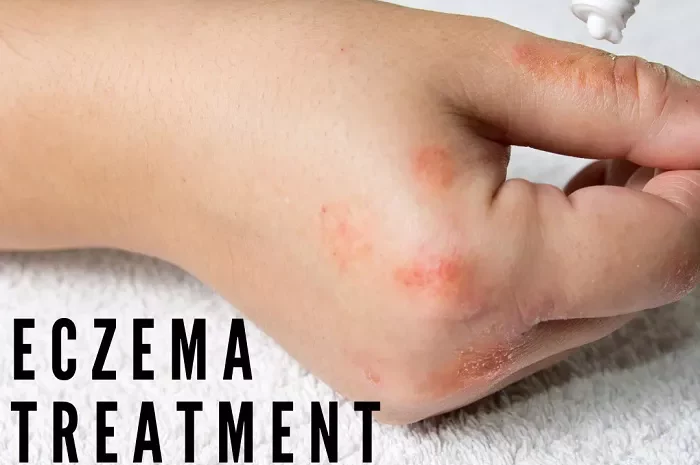Shingles, medically known as herpes zoster, is a viral infection that causes a painful rash. It is caused by the varicella-zoster virus (VZV), the same virus that causes chickenpox. Understanding the origin and behavior of this virus is crucial in comprehending the development, transmission, and treatment of shingles.
Varicella-Zoster Virus (VZV)
The varicella-zoster virus belongs to the herpesvirus family, specifically the alphaherpesvirus subfamily. It is highly contagious and primarily affects humans. VZV is responsible for two distinct clinical manifestations: chickenpox (varicella) and shingles (herpes zoster).
Chickenpox: The Initial Infection
Chickenpox is usually the first encounter with the varicella-zoster virus. It typically occurs during childhood and presents as an itchy rash with small, fluid-filled blisters. While uncomfortable, chickenpox is generally mild and self-limiting in healthy individuals.
Upon infection, the virus replicates in the respiratory tract and spreads throughout the body via the bloodstream and nervous system. This initial infection triggers the body’s immune response, resulting in the characteristic symptoms of chickenpox.
After recovery from chickenpox, the varicella-zoster virus remains dormant (inactive) in sensory nerve cells near the spinal cord and brain. The immune system effectively suppresses the virus, preventing it from causing further illness.
Reactivation: The Onset of Shingles
Despite being dormant, the varicella-zoster virus can reactivate later in life, typically due to weakening of the immune system. This reactivation leads to the development of shingles.
Several factors can trigger the reactivation of VZV, including:
Age: The risk of shingles increases with age, particularly after the age of 50.
Weakened Immune System: Conditions or medications that weaken the immune system, such as HIV/AIDS, cancer treatments, or long-term steroid use, can increase the risk of shingles.
Stress: Physical or emotional stress can weaken the immune system, making reactivation more likely.
Other Illnesses: Certain illnesses, such as diabetes or autoimmune diseases, may predispose individuals to shingles.
When the varicella-zoster virus reactivates, it travels along the sensory nerve fibers to the skin, where it replicates and causes inflammation. This results in the characteristic rash and pain associated with shingles. The rash typically appears as a single stripe or band on one side of the body, following the path of the affected nerve.
Transmission of Varicella-Zoster Virus
Unlike chickenpox, which is primarily spread through respiratory droplets, shingles is not directly contagious. However, individuals with active shingles can transmit the varicella-zoster virus to others who have not had chickenpox or been vaccinated against it. The virus is transmitted through direct contact with the fluid from the shingles blisters.
When a susceptible individual comes into contact with the virus, they may develop chickenpox rather than shingles. This scenario occurs if the person has never had chickenpox or received the varicella vaccine. Once infected, the virus follows its natural course, causing chickenpox rather than shingles.
Prevention and Treatment
Vaccination is the most effective way to prevent both chickenpox and shingles. The varicella vaccine, routinely administered during childhood, significantly reduces the risk of developing chickenpox and, consequently, shingles later in life.
For adults who have not been vaccinated or have not had chickenpox, the shingles vaccine (Zostavax or Shingrix) is recommended to reduce the risk of developing shingles and its complications. Shingrix, in particular, has shown high effectiveness in preventing shingles and is recommended for adults aged 50 and older.
Treatment for shingles aims to alleviate symptoms, shorten the duration of the illness, and prevent complications. Antiviral medications, such as acyclovir, valacyclovir, or famciclovir, are commonly prescribed to reduce the severity and duration of the rash and pain. Pain relievers, anti-inflammatory drugs, and topical treatments may also be recommended to manage symptoms.
Conclusion
Shingles is caused by the reactivation of the varicella-zoster virus, the same virus responsible for chickenpox. Understanding the origins, transmission, and risk factors associated with VZV is essential for effective prevention and management of both chickenpox and shingles. Vaccination plays a crucial role in reducing the incidence and severity of these viral infections, emphasizing the importance of immunization throughout life. Additionally, prompt recognition and treatment of shingles can help alleviate symptoms and prevent potential complications, highlighting the significance of early medical intervention.


























